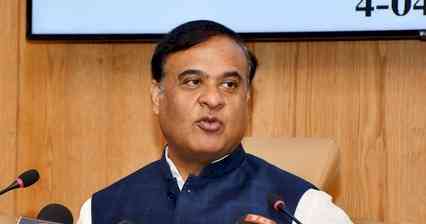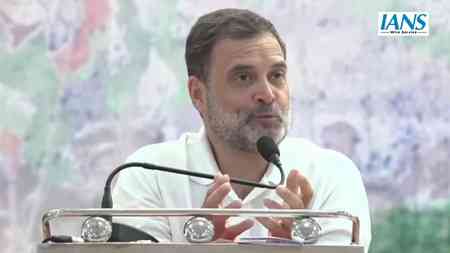NDA govt attempting to undermine country's secular fabric: Tejashwi on Waqf bill
The Leader of the Opposition in the Bihar Assembly, Tejashwi Yadav, criticised the proposed Waqf Amendment Bill, accusing the NDA government of attempting to undermine the country's secular fabric and incite religious tensions.

Patna, Aug 23 (IANS) The Leader of the Opposition in the Bihar Assembly, Tejashwi Yadav, criticised the proposed Waqf Amendment Bill, accusing the NDA government of attempting to undermine the country's secular fabric and incite religious tensions.
Yadav made these remarks following a meeting with a delegation of various Muslim organisations at his residence on Friday.
“We strongly oppose this unconstitutional and unnecessary amendment bill proposed by the NDA government. It was brought with the aim of breaking the secular fabric of the country and spreading religious frenzy,” Yadav said.
His comments reflect a significant political opposition to the bill, which is seen by some as a move that could potentially disturb communal harmony in India.
Highlighting his party's longstanding commitment to minority rights, Tejashwi Yadav said that both his party and its national president, Lalu Prasad Yadav, have consistently been sensitive to the issues concerning minorities and are firmly against any government interference in religious matters.
“The proposed amendments would negatively impact not only the religious, cultural, and property rights of Muslims but also those of other religious communities, thereby setting a dangerous precedent,” he said.
Tejashwi Yadav reassured the delegation of Muslim organisations that he and his party stand firmly with them in opposing the bill. He also criticised Bihar Chief Minister Nitish Kumar for supporting the proposed amendments, stating, “We will not let it pass from Parliament at any cost and will fight this battle on all forums. It is unfortunate that Bihar Chief Minister Nitish Kumar is in support of this bill.”
The Waqf Amendment Bill, introduced during the budget session of the Parliament, proposes several significant changes, including allowing a non-Muslim chief executive officer and at least two non-Muslim members to be appointed by the state government to the Waqf boards at the state level. Additionally, the bill proposes to give the District Collector the authority to decide whether a property is classified as Waqf property or government land.
--IANS
ajk/uk


 IANS
IANS 








